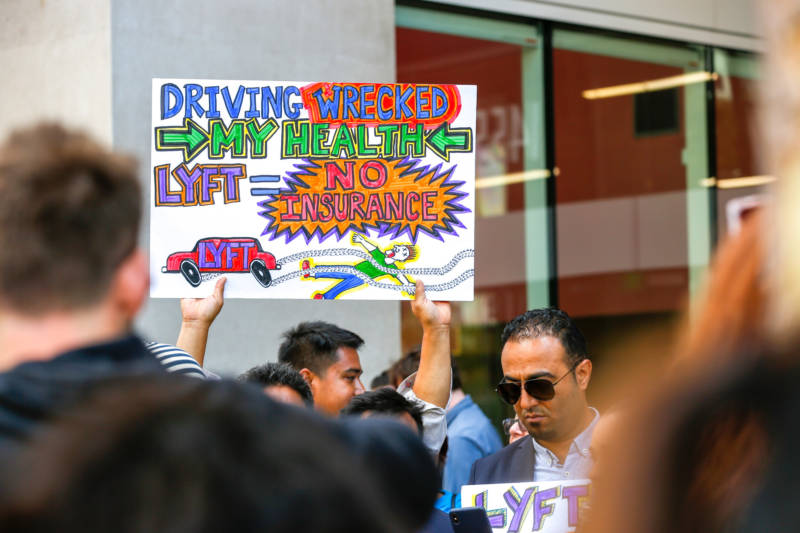This post has been updated.
A landmark bill, which would offer new wage and benefit protections to workers in California's gig economy and a host of other industries, is headed to the governor's desk.
Assembly Bill 5 sailed through the state Assembly on Wednesday by a vote of 56-15, just over 12 hours after its late-night approval in the Senate, a major victory for labor advocates and a stinging defeat for the tech companies that staunchly opposed it.
Democratic Gov. Gavin Newsom, who was initially on the fence, endorsed the bill earlier this month and has committed to signing it.
AB 5 could impact upward of a million workers in a wide swath of industries beyond just the gig economy, from general contractors to truck drivers to strippers.
Under a 2018 state Supreme Court decision, workers who perform core functions of a business must be classified as employees and not contractors. The decision established a simple three-part criteria, known as the ABC test, to determine a worker's employment status.
AB 5, which would go into effect Jan. 1, codifies that decision. Labor advocates say that even though the Dynamex decision is already law, many companies have been flouting it. The measure would ensure that workers would not have to file suit on a case-by-case basis to seek enforcement.
"There’s a whole bunch of things that they’re currently being cheated out of, frankly," said Steve Smith with the California Labor Federation. "With respect to Uber and Lyft, it’s the exploitation they subject their workers to on a daily basis. Many of these workers are not receiving minimum wage. They are misclassified as contractors when they actually should be considered employees, meaning there’s a whole host of benefits they’re not getting that they should get like everyone else."
In steering more workers to employee status, the bill would force companies to offer basic worker protections that contractors don't currently receive, such as guaranteed minimum wage, overtime pay, contributions to Social Security and Medicare, and unemployment and disability insurance. Those workers would also be eligible for workers’ compensation and sick and family leave and would be protected from discrimination at work, none of which are currently afforded to contractors.
"It’s a really important bill. States all over the country are watching to see what happens," said Veena Dubal, a UC Hastings employment law professor, who spent several years representing San Francisco taxi drivers. "It’s pretty clear that most workers in the gig economy need labor and employment law protections under California law. ... It's vital that we have legal analysis that is clear both to businesses and workers so there's less ambiguity."
State Sen. María Elena Durazo, D-Los Angeles, said that for too long companies like Uber and Lyft have skirted labor laws and taken advantage of workers.

